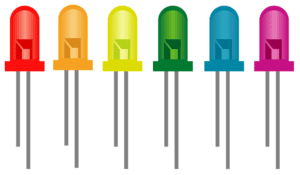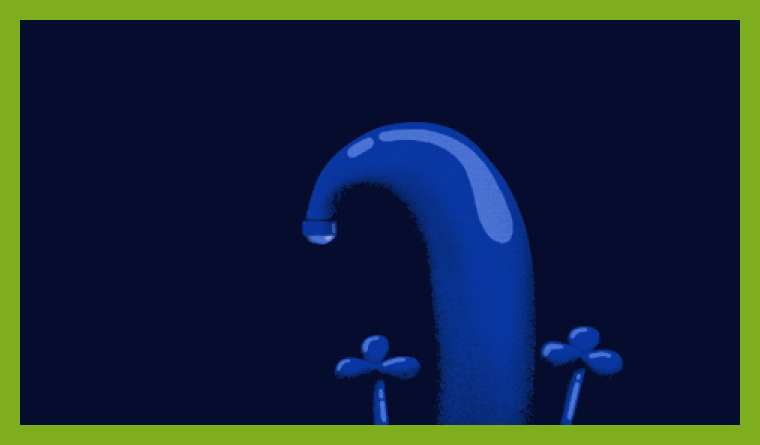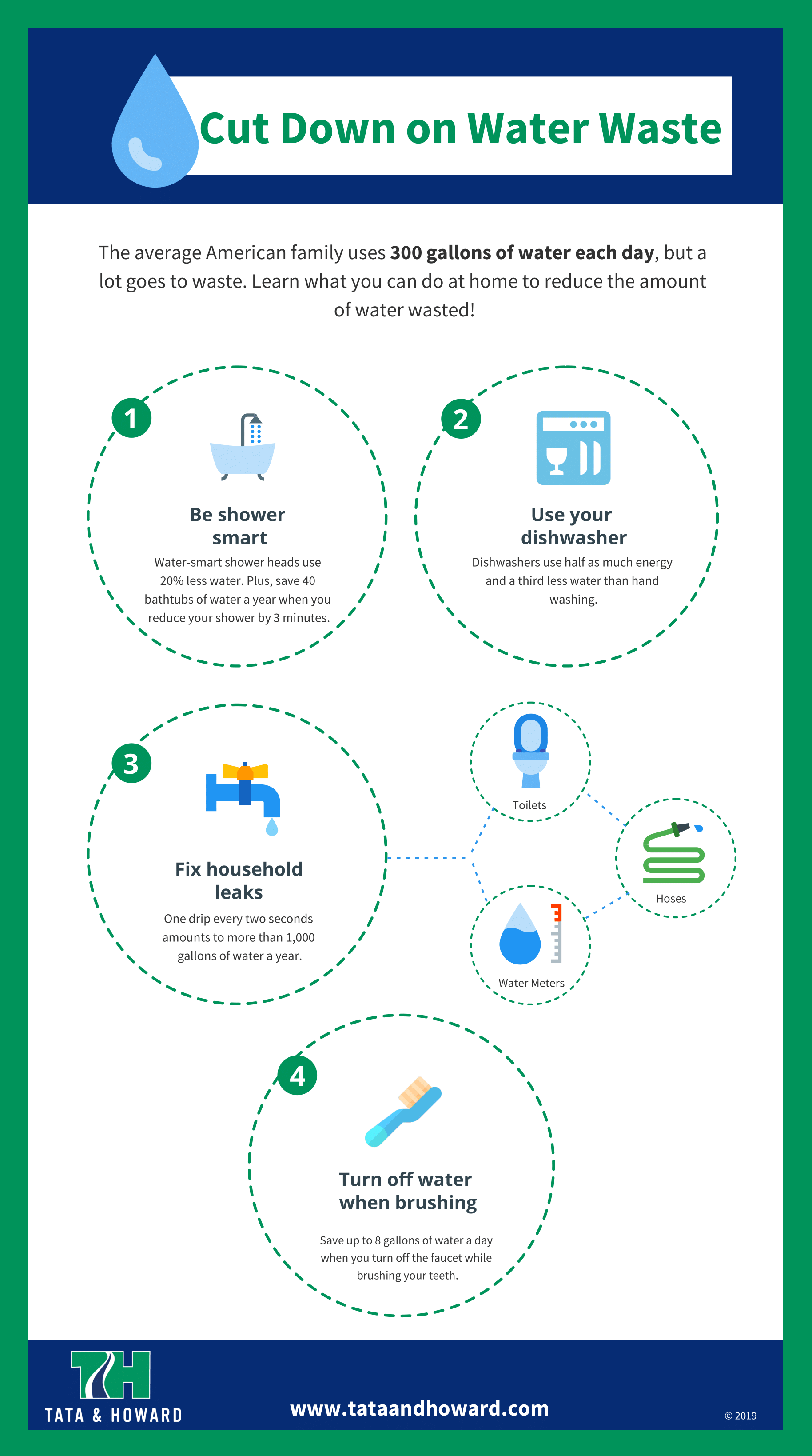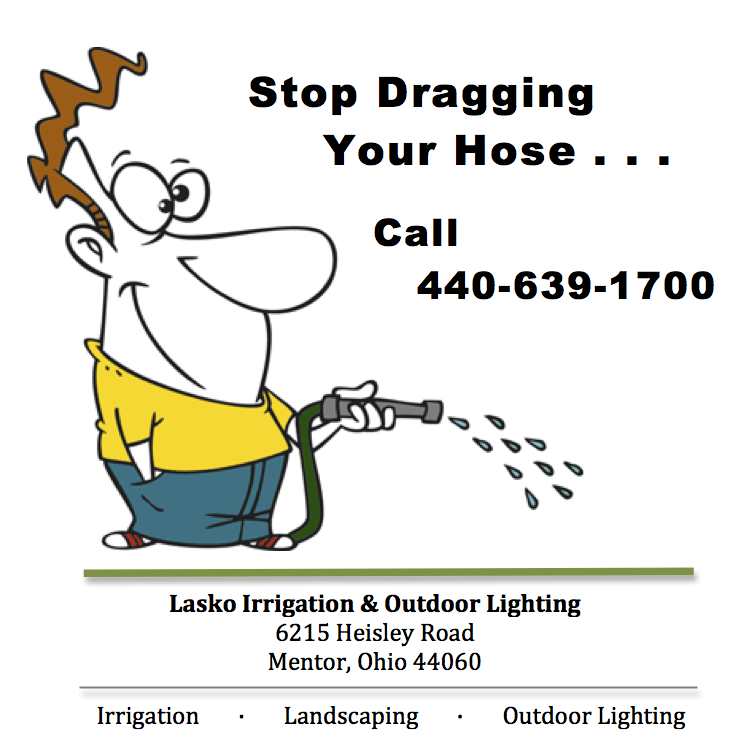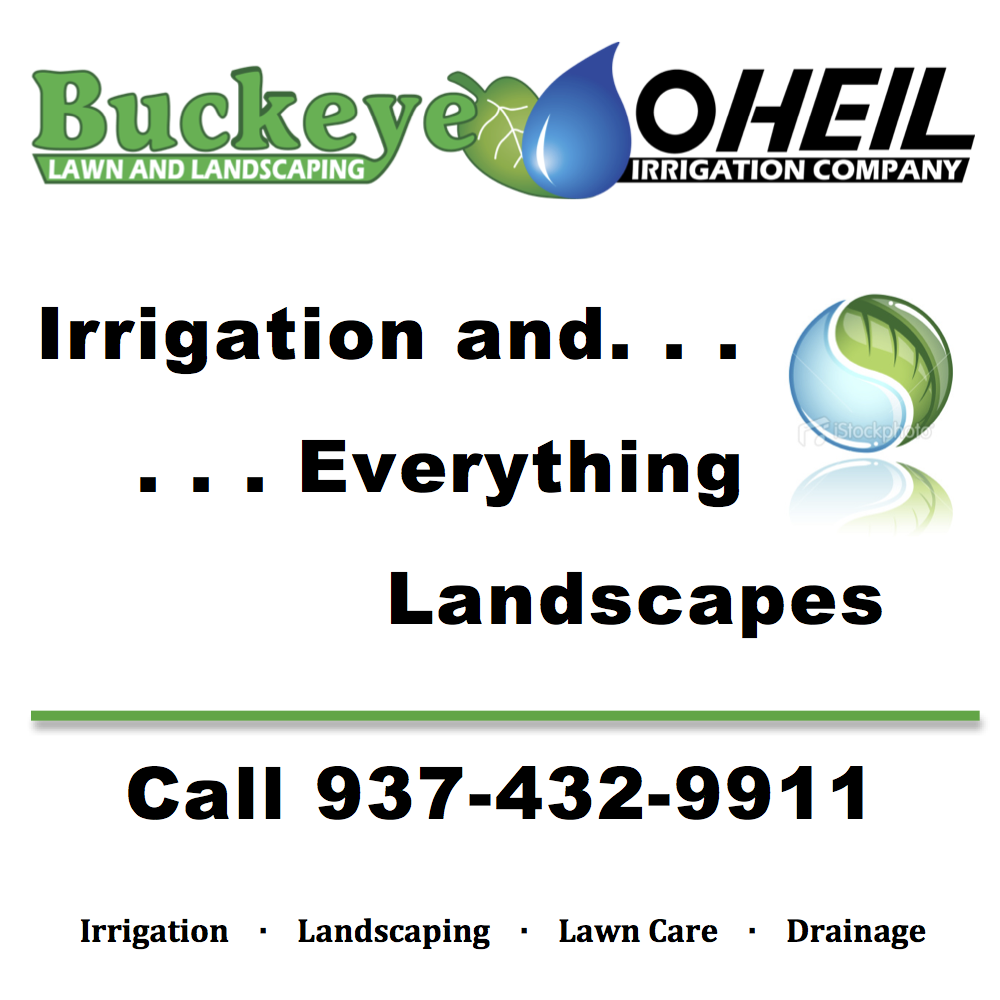
by Tom Barrett | Jul 6, 2022
“Why Does My Lawn Look Dead?”
Along with July’s intense summer heat comes the prospect of seasonal drought.
In Ohio, we get more than our fair share of 90-degree summer days. These extreme temperatures and dry periods can cause cool-season grasses, such as bluegrass and fescue, to become dormant. That’s when irrigation contractors can expect to receive calls from concerned homeowners.
Have an Education Plan
The prepared contractor has a plan in place to address these customer concerns. You can help alleviate homeowner concerns by educating them on the grass germination and growth process.

Ohio’s Hottest Summer
July 1934 was the hottest month ever recorded in Ohio, setting the following heat records:
- Columbus – 106° F
- Bowling Green – 107° F
- Delaware – 108° F
- Cincinnati – 109° F
- Findlay – 109° F
- Chillicothe – 109° F
- Fremont -110° F
- Wilmington – 111° F
- Hamilton – 111° F
- Defiance – 111° F
- Gallipolis – 113° F
About 160 Ohioans died of heat-related causes during the week of July 20-26, 1934. More recently, during an extreme heat wave in July 2019, the mercury levels climbed to 112 degrees in northern Ohio.
Source: Cleveland.com
For instance, explain how different seeds germinate at different times, and the importance of watering longer but less often.
Your customers need to know that dormancy is nature’s defense mechanism to help plants survive tough, stressful conditions. Avoiding it completely during the dog days of summer can be difficult, but there are things they can do to help lessen its impact.
In general, lawns that have gone dormant should be left dormant until cooler weather sets in. Occasional watering will help prevent damage, but don’t overdo it. Overwatering a lawn in an effort to “wake it up,” can be very stressful to the turf.
Inform your customers that bluegrass can typically withstand about six weeks of dormancy before it suffers drought damage. Factors that can accelerate dormancy include secondary heat from buildings or fences, or south-facing slopes.
Seasonal Drought Survival Tips
Provide your customers with these practical tips on how they can mitigate the effects of dormancy on their lawns:
- Grow drought-tolerant grasses. Most grasses can withstand some dormancy very well, but some grasses cope better than others. For instance, buffalo grass, fine-leaf or tall fescues, and older varieties of Kentucky bluegrass are the most drought-tolerant species found in Ohio.

Columbus-Area
Watering Restrictions
Several municipalities within the Columbus metro area maintain watering schedules year-round, but particularly during the hottest months. For example:
Westerville – Addresses that end in even numbers can water grass on even-numbered days, and those that end in odd numbers on odd-numbered days. (This restriction does not apply to flowerbeds, trees, shrubs and gardens.
Delaware – During periods of limited rainfall, addresses that end in odd numbers can water on Tuesday, Thursday, and Saturday; even-numbered addresses may water on Wednesday, Friday and Sunday. All watering is prohibited on Mondays.
The communities of Gahanna, Dublin, Hilliard, Upper Arlington, Powell, Bexley, Grandview, and Granville impose similar restrictions during the driest months.
Source: Wikilawn
- Newly sodded or seeded lawns should not go dormant. Grass must be well established in order to survive a period of drought. Likewise, lawn that has been damaged by disease or insects does not tolerate dormancy well. It is advised that you water the lawn regularly to keep it green.
- Keep turf as high as possible by raising the mowing height to 3-4 inches during the hottest time of the year. This allows for deeper root development, and tall grass dries out more slowly than shorter grass.
- Understand a dormant lawn’s water needs. A sleeping lawn needs at least half an inch of water every two to three weeks in order to stay alive. If the lawn is receiving that much rainfall, then there is no need to water at all.
- Minimize traffic on the lawn. Foot or vehicle traffic can kill the grass and cause bare spots in the lawn.
- Once summer passes, thoroughly water the lawn to wake it up. Apply enough water to penetrate the soil down to the root — about six to 12-inches below the ground. After about several weeks of cooler temperatures and adequate precipitation, the lawn will be green once again.
Sources:
Featured Image: Adobe, License Granted
Irrigation & Lighting
Green Industry Pros
LawnEQ

by Tom Barrett | Jun 2, 2022
“Proud of our past. Focused on the future.”
It’s hard to believe, but we’ll soon be heading into July, and you know what that means…Smart Irrigation Month!
Sponsored by the Irrigation Association, this annual initiative is designed to promote the social, economic and environmental benefits of efficient irrigation. This year’s theme is “Proud of our past. Focused on the future.”
Looking Back
First launched in 2005, Smart Irrigation Month has gained traction each year, as various stakeholders recognize the potential impact of efficient irrigation during the hottest summer months and year-round.
![]()
 Help Ohio Declare
Help Ohio Declare
Smart Irrigation Month
Over the past 17 years, many states have declared the month of July to be Smart Irrigation Month, including our neighbors, Indiana and Michigan. Unfortunately, Ohio has yet to join them. You can help change that!
Simply download the IA’s Sample Proclamation, complete it, and email it to your local representative. Promoting Smart Irrigation Month is good for your business and good for Ohio!
In past years, numerous states and municipalities have jumped on the bandwagon to officially declare July as Smart Irrigation Month. (See sidebar.)
Landscape irrigation contractors have taken advantage of this opportunity to differentiate themselves and add value for their customers by promoting water-saving products, practices and services. These businesses report that participating in Smart Irrigation Month campaigns has resulted in new customers and increased sales.
Check out the 2022 marketing toolkit.
Looking Forward
This year’s Smart Irrigation Month is also about focusing on the industry’s future and the many ways efficient irrigation will continue to benefit society through more sustainable landscapes. Here are just a few of the innovations that irrigation professionals can anticipate down the road:
 No More Wires
No More Wires
Wireless valves will likely become the norm, particularly for larger installations. Wireless technology will use long-range, low-power, wide area networks. Instead of batteries, inline, turbine-based generators will provide power to supercapacitors.
These wireless valves are expected to include ultrasonic flow sensors that use sound waves to determine the flow velocity within a pipe. This technology can provide very detailed alerts to help technicians and homeowners improve system efficiency.
—Article Continues Below—

 Droning On
Droning On
Some of today’s ongoing labor shortage may be alleviated through drone-based irrigation inspections. These drones can be equipped with a bevy of detectors to replicate – and exceed — human sensory capabilities.
Armed with infrared, thermal and acoustical sensors, irrigation drones will fly to each station and locate problems, which will then be pinpointed on a geographic information system (GIS) map. The data will be collected and used to automatically provide suggestions, such as upgrades to components that fail most frequently. This information would then interface with software that can instantly create work orders, pending human review and approval.
 Alternate Water Sources
Alternate Water Sources
Alternative sources of water for irrigation will likely become increasingly important in the future, especially in areas of water scarcity. These alternate sources could include greywater, rainwater, and even condensate from air conditioning. Onsite tanks can be used to collect, store and filter the water, which is then delivered to highly efficient subsurface drip irrigation piping.
Using A/C condensation will be particularly helpful for the hottest areas and during the hottest months, when condensate quantities are greatest and evapotranspiration is highest.
Sources:
Featured Image: Adobe, License Granted
Irrigation Association
Athletic Turf
Landscape Management
Green Industry Pros

by Tom Barrett | May 18, 2022
Industry Exhibitions Always Evolving
Over the past several decades Ohio’s green industry has continued to evolve.
It’s become an art, a profession, a business, a science on the cutting edge of biotechnology, and an industry. Its associated organizations and trade shows have evolved as well.
Let’s look at some recent changes to green industry trade shows with an Ohio connection.
From CENTS to MGIX to MidwestGREEN
The annual trade show for the Ohio Green Industry Association (OGIA, formerly ONLA) has experienced multiple iterations over the years. For more than half a century – from 1964 through 2016 – the show was known as the Central Environmental Nursery Trade Show, or CENTS.

CENTS 2015
In its peak year of 2002, CENTS showcased 1,357 booths that were occupied by 710 exhibitors, and the number of registered attendees topped 13,000. In subsequent years, however, show attendance began to dwindle, as more green industry professionals chose to transact business online.
In 2017, the event was rebranded as Midwest Green Industry Experience, or MGIX — in an effort to include more of its diverse audience — and the roster of educational sessions was expanded. The trade show itself was expanded in 2018. Then, later that year, the association revamped the MGIX format into a series of networking programs and dropped the trade show altogether.

Well, now it’s back – in a limited capacity and under a new name: MidwestGREEN.
This year, in addition to keynote speakers, multi-track educational sessions, and round table discussions, MidwestGREEN, will also offer 50 exhibition booths for showcasing and demonstrating products in a scaled setting.
MidwestGREEN is scheduled for Nov. 1-3,
at the Columbus Convention Center.

From OFA Short Course to Cultivate
You may know Cultivate as the national trade show hosted annually by the American Horticulture Association (AmericanHort). The event has been held every year (except for 2020) at the Columbus Convention Center since the organization was formed in 2014.
What you may not know is that the trade show traces its roots back to 1930. That’s when the Ohio Florist Association (OFA) held its first Short Course event in a Columbus hotel. By 1964, the Short Course had expanded to 50 booths and drew 1,000 attendants. That figure more than doubled by 1981. With 259 booths, the venue was changed to the Ohio Center and the Hyatt Regency Columbus Hotel.

Cultivate 2021. Photo: AmericanHort.
Ten years later, the Short Course trade show moved to Cincinnati and expanded to 599 exhibitors. By that time, 77% of OFA membership was located outside of Ohio. So the organization changed its name to the Association of Horticulture Professionals. (But it kept the OFA acronym.)
The event moved back to Columbus in 1998 — and there it has stayed. By 2004, the Short Course had become the industry’s preeminent trade show and education series; overall attendance topped 9,800 that year.
Still Growing
By the time the next decade dawned, Short Course was the largest horticulture show in the U.S., as well as one of the largest trade shows of any type in North America.
Then in 2014, OFA merged with the 138-year-old American Nursery and Landscape Association (ANLA) to form AmericanHort. Today, the organization boasts a national and international membership of more than 20,000 green industry professionals.

Following in the footsteps of the OFA Short Course, Cultivate has now become one of the largest trade shows in the country, with more than 650 exhibitors and 100+ educational sessions.
Cultivate ’22 is scheduled for July 16-19, at the Columbus Convention Center.

From GIE+EXPO to Equip Exposition
The trade show that became the Green Industry & Equipment Expo (GIE+EXPO) began in 1984 as the International Lawn, Garden & Power Equipment Exposition. For more than 20 years the show’s venue has been just over the river at the Kentucky Exposition Center, making it a must-attend event for many Ohio green industry professionals.

OPEI Through the Years
- 1952: Eleven manufacturers charter the Lawn Mower Institute, a nonprofit trade association.
- 1956: Engine manufacturers are invited to join the organization.
- 1960: The association changes its name to the Outdoor Power Equipment Institute.
- 1962: OPEI becomes a member of the American Standards Association (now the American National Standards Institute).
- 1984: OPEI launches the International Lawn, Garden & Power Equipment Exposition (EXPO), the industry’s first trade show.
- 2001: OPEI merges with the Portable Power Equipment Manufacturers Association (PPEMA).
- 2007: OPEI merges the International Lawn, Garden & Power Equipment Exposition with the Green Industry Expo, creating GIE+EXPO.
- 2010: Hardscape North America (HNA) co-locates with GIE+EXPO.
- 2017: GIE+EXPO is named the 10th largest trade show in the United States.
- 2021: OPEI rebrands GIE+EXPO as Equip Exposition and opens a branch office in Louisville.
The event is managed by OPEI, the Outdoor Power Equipment Institute. (See sidebar, “OPEI Through the Years.”)
In 2007, OPEI partnered with the National Association of Landscape Professionals (NALP) and the Professional Grounds Management Society (PGMS) to create GIE+EXPO.
In 2010, hardscape and outdoor living products were added to the show when Hardscape North America (HNA) co-located with GIE+EXPO. For many years running, this green industry exposition has reported record attendance and exhibit space; by 2019 it was the sixth largest trade show in the United States.
Like most live exhibitions, GIE+EXPO went virtual for 2020. But in 2021 it came back with a bang, boasting increased attendance numbers (about 24,000) from all segments of the green industry.
At that time, OPEI introduced a new name and brand for the annual event: Equip Exposition. The organization also opened a branch office in Louisville, demonstrating its dedication to the show and its investment in the host city.

The 2022 expo will once again feature more than 1,000 exhibits throughout its 675,000-sq.-ft. showroom and 20-acre outdoor demonstration area.
Equip Exposition is scheduled for October 19 through October 21, at the Kentucky Exposition Center in Louisville.

Sources:
Featured Image: Equip Exposition
OGIA
GPN Magazine
OPE Business

by Tom Barrett | Apr 6, 2022
Pandemic Has Boosted Demand for
Outdoor Living Spaces
With more homeowners investing in their outdoor living spaces during the COVID-19 pandemic, the demand for landscape lighting has continued to grow.
As a result, more irrigation and landscape contractors are adding outdoor lighting to their menu of services.
No Place Like Home
For the past two years, homeowners have spent more time and money on home improvement than ever before. And statistics show that residential landscaping has been the top priority during this period. Outdoor areas for cooking and entertaining are being updated, expanded, and illuminated with extensive area lighting.
Did You Notice
These Changes?

Earlier this year, the Irrigation Association replaced its Irrigation & Green Industry publication with Irrigation & Lighting. The new periodical, published quarterly instead of monthly, provides news and information to landscape irrigation and lighting contractors.
 The Ohio Nursery & Landscape Association (ONLA) has changed its name to the Ohio Green Industry Association (OGIA). The change is intended to make the organization more inclusive and reflect its commitment to all green industry professionals across the state.
The Ohio Nursery & Landscape Association (ONLA) has changed its name to the Ohio Green Industry Association (OGIA). The change is intended to make the organization more inclusive and reflect its commitment to all green industry professionals across the state.
Landscape designers know that one of the most effective ways to decompress when the world has run amok is with soothing low-wattage outdoor lighting. Moonlighting (soft lights that mimic silvery moonlight due to their very high placement in trees or structures) and downlighting (aiming lamps downward to imitate natural light) are two relaxing options that never go out of style.
In addition, homeowners are increasingly opting for smart outdoor lighting, a market that is expected to make strong gains through 2024, according to market research firm Freedonia Group. Smart technology allows users to switch outdoor fixtures off and on — and even adjust brightness and color — through remote control or voice activation.
Amp Up Your Irrigation Business
Does your irrigation business include landscape lighting services? If not, here are a few reasons to consider branching out:
- Outdoor lighting is simple to learn and requires no additional licensing.
- Outdoor lighting is safe due to the low voltage.
- Installing lights is an uncomplicated way to generate more income from a single job, since lighting wire can easily be laid when digging a trench for irrigation pipe.
—Article Continues Below—

- Lighting installation does not require a large crew or additional staff.
- Including lighting services in your portfolio makes your business more attractive to homeowners who want one contractor to handle all aspects of a project.
How to Get Started
Although no special licensing or certification is needed to install landscape lighting, you should take at least some training before performing jobs for homeowners. It’s a good idea to invest six to 10 hours of class time in order to acquire a basic knowledge of outdoor lighting.

Benefits of LEDs
For low-voltage landscape lighting, LED bulbs are the preferred choice, providing the following benefits to both contractors and homeowners:
- LED light uses about a third of the electrical power of incandescent or halogen, and LED lamps can last 20 times longer. Both represent significant cost savings.
- Contractors and designers can creatively accent a landscape or outdoor living area by choosing from an array of LED color and temperature variants.
- Because LEDs lack both heat and UV light, they are much less attractive to insects.
- Time required for bulb replacements and other general electrical issues is greatly reduced.
This training is available through various suppliers (e.g., Wolf Creek Company), as well as lighting vendors (such as Kichler, FX Luminaire and Alliance).
After you’ve received the training, try it out on your own home or that of your friends. This provides you with an opportunity to experiment and hone your skills before you begin customer installations. For example, you can determine how much light is produced by an LEDs of various wattage.
When it’s time to find a lighting supplier, most contractors choose to stay local for the sake of convenience. But you may wish to get quotes from two or three different distributors. Look for one with the best combination of pricing, product knowledge and experience.
Once your service is up and running, continue to learn as much as you can about outdoor lighting designs and products. (You want to be more knowledgeable than your customer!) Education and experimentation are keys to success when it comes to mastering the profitable business of landscape lighting.
Sources:
Featured Image: Adobe, License Granted
Statista
Landscape Business
Architectural Digest

by Tom Barrett | Mar 2, 2022
EPA’s Annual Event Runs from
March 14-20, 2022
Fighting water waste is part of every irrigation professional’s job description. This year’s Fix a Leak Week is a great time to remind your customers of your commitment to water efficiency.
Irrigation System Leaks
One small irrigation system leak — the thickness of a dime — can waste about 6,300 gallons of water each month! Advise your customers of the importance of the spring checkup. To ensure irrigation system components haven’t been damaged by frost or freezing weather, they should always be inspected prior to startup.

Become WaterSense Certified
If you’re not already WaterSense certified, you may want to consider the following exclusive benefits:
- You’ll be included in the EPA’s online Directory of Certified Professionals.
- You can receive work opportunities for new home projects, federal facilities, and LEED® projects.
- You’ll be authorized to use the WaterSense label on your business cards and other promotional items.
- You’ll enjoy increased exposure to potential customers through national EPA recognition as an environmental steward.
- You’ll have access to EPA tools and other resources.
Interested? Click Here.
Are you WaterSense certified? (See sidebar at right.) If so, now’s the time to let your customers know that you’ve passed an EPA program specifically dedicated to improving water efficiency. So not only can you help identify and correct any irrigation system leaks, you can also ensure their system is performing optimally.
About 800 irrigation controllers and more than 340 spray sprinkler bodies have been certified by WaterSense for their water efficiency. It’s a good idea to carry an assortment of these products for your customers.
Other Household Leaks
Research has shown that the typical home wastes between 2,000 and 20,000 gallons of water per year due to leaks. Individually and collectively, the leaks in a single home can easily waste thousands of gallons of water every year, costing both the homeowner and the utility.
So during Fix a Leak Week, remind your customers to check for leaky faucets or showerheads, as well as malfunctioning toilets. This will demonstrate to them that you’re serious about water efficiency.
You can also provide them with some simple ways to pinpoint household leaks. Such as:
—Article Continues Below—

Pinpointing Leaks
 Check your household water usage during one of the colder months (January or February). If a family of four is using more than 12,000 gallons per month, there are some serious leaks.
Check your household water usage during one of the colder months (January or February). If a family of four is using more than 12,000 gallons per month, there are some serious leaks.
 Record the odometer-type number on your water meter. Then turn off all household water for two hours. Then check the meter again. If the number has changed at all, you’ve likely got a leak.
Record the odometer-type number on your water meter. Then turn off all household water for two hours. Then check the meter again. If the number has changed at all, you’ve likely got a leak.
 Identify toilet leaks by placing one drop of food coloring in the toilet tank. After 10 minutes, check the bowl. If there’s color in the bowl, you have a leak.
Identify toilet leaks by placing one drop of food coloring in the toilet tank. After 10 minutes, check the bowl. If there’s color in the bowl, you have a leak.
Some Simple Fixes
 Many faucet leaks can be remedied by simply replacing worn-out washers and gaskets
Many faucet leaks can be remedied by simply replacing worn-out washers and gaskets
 Got a leaky toilet? Try replacing the flapper.
Got a leaky toilet? Try replacing the flapper.
 For a leaky showerhead, make sure there’s a tight connection between the fixture and the pipe stem. Then secure it with pipe tape (also called Teflon tape).
For a leaky showerhead, make sure there’s a tight connection between the fixture and the pipe stem. Then secure it with pipe tape (also called Teflon tape).
For more leak fixes, as well as online tutorials, check out the WaterSense website.
Sources:
Featured Image: Giphy.com
The Washington Post
Water Use It Wisely
Water News Network


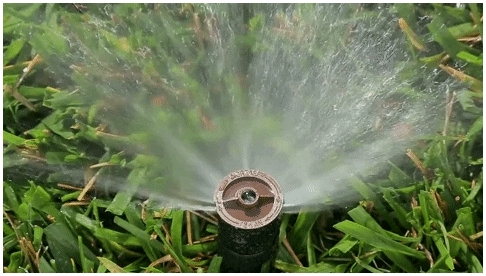
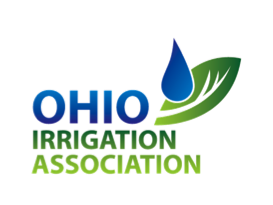
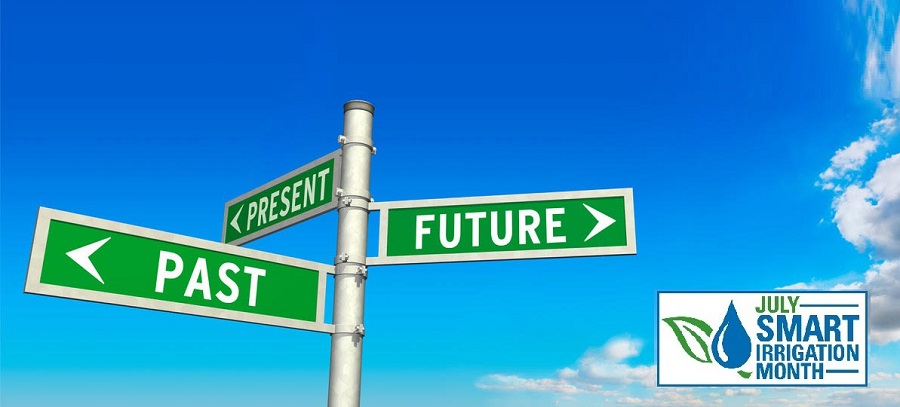
 Help Ohio Declare
Help Ohio Declare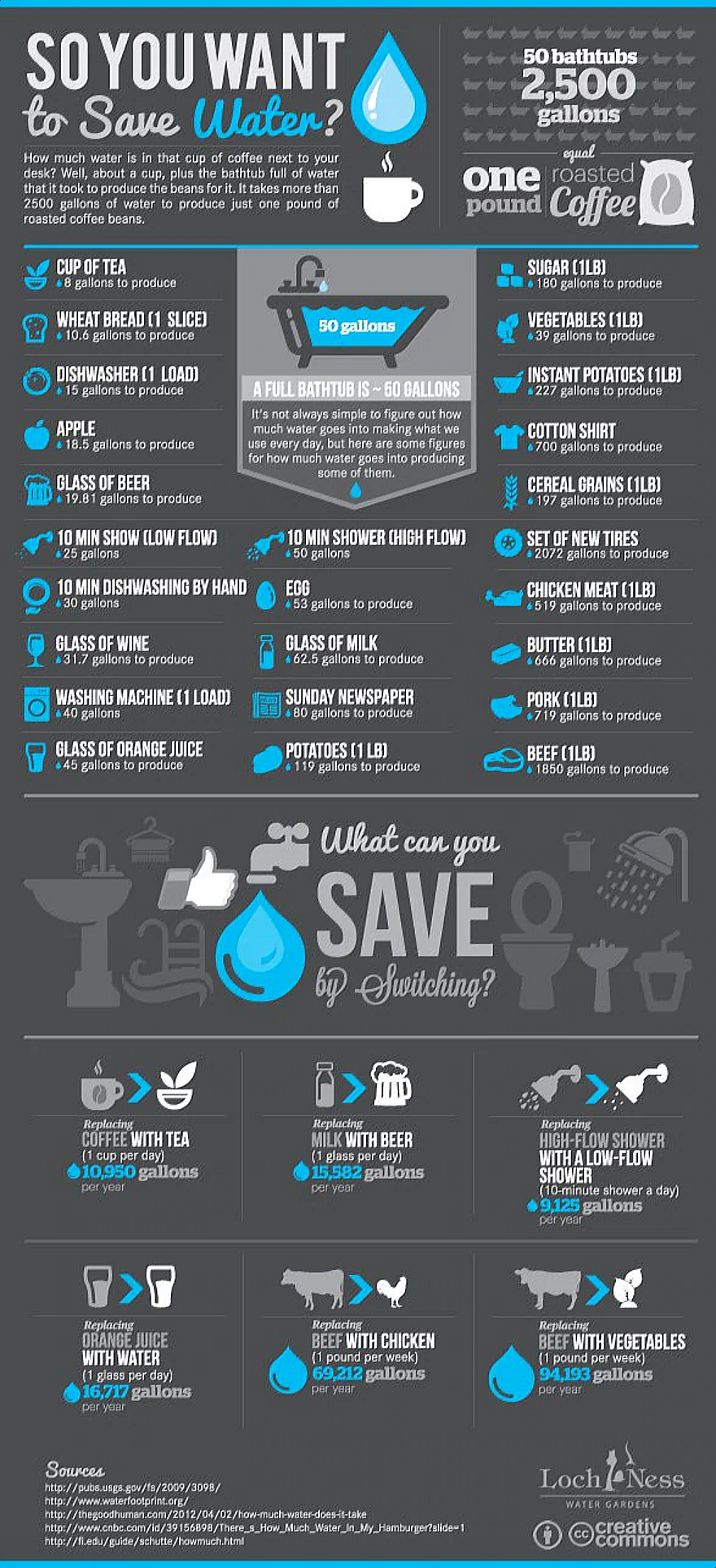

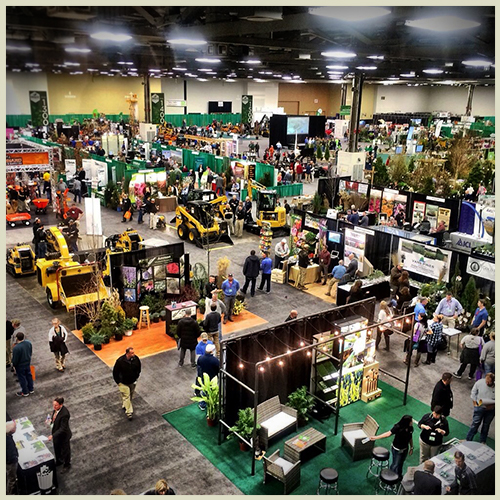





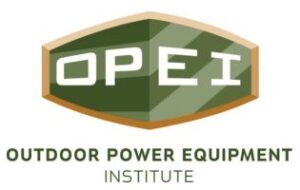



 The Ohio Nursery & Landscape Association (ONLA) has changed its name to the
The Ohio Nursery & Landscape Association (ONLA) has changed its name to the 
